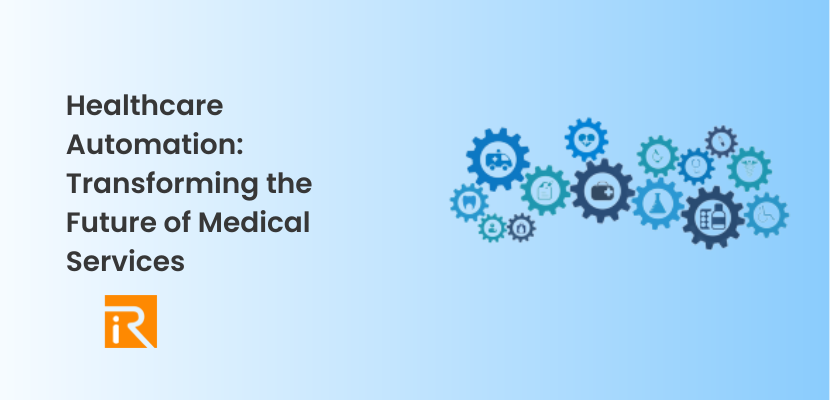
- Healthcare Automation: Understanding the Landscape
- What is Healthcare Automation?
- The Key Components of Healthcare Automation
- The Benefits of Healthcare Automation
- Healthcare Automation in Action
- The Challenges of Healthcare Automation
- The Future of Healthcare Automation
- Healthcare Automation & Patient Safety
- FAQs
- Conclusion
Welcome to a journey into the cutting-edge realm of healthcare automation. As technology advances, the healthcare industry is embracing automation to streamline processes, enhance efficiency, and improve patient outcomes. In this article, we delve into the intricacies of healthcare automation and its transformative impact on medical services. Join us as we uncover the potential, challenges, and future prospects of automation in the healthcare sector.
Healthcare Automation: Understanding the Landscape
To truly grasp the significance of healthcare automation, we need to understand its scope and the various domains it encompasses.
What is Healthcare Automation?
Healthcare automation refers to the integration of technology, artificial intelligence (AI), and robotics into medical processes and workflows. It involves the use of intelligent systems to perform tasks that were traditionally carried out by humans, such as diagnostics, data analysis, treatment planning, and administrative duties.
The Key Components of Healthcare Automation
Healthcare automation comprises several crucial components that work together to optimize medical services:
-
Robotic Process Automation (RPA)
RPA automates repetitive tasks, such as data entry, appointment scheduling, and billing, freeing up healthcare professionals to focus on patient care.
-
AI-powered Diagnostics
AI algorithms analyze medical data, including images and test results, to aid in diagnosing diseases with greater accuracy and speed.
-
Virtual Health Assistants
Virtual assistants powered by natural language processing (NLP) provide patients with instant support, answering queries and offering medical advice.
-
Telemedicine and Remote Monitoring
Automation enables remote consultations and real-time patient monitoring, improving accessibility to healthcare services.
-
Supply Chain Management
Automation optimizes the supply chain, ensuring the timely delivery of medical equipment, medications, and resources.
The Benefits of Healthcare Automation
Enhanced Accuracy in Diagnostics
Healthcare automation leverages the power of AI to analyze vast datasets and assist medical professionals in accurate disease diagnosis. AI-driven diagnostic tools can detect patterns and anomalies that might be overlooked by human eyes, leading to earlier and more effective treatment.
Improved Efficiency in Healthcare Delivery
By automating routine administrative tasks and streamlining processes, healthcare providers can allocate more time and resources to direct patient care. This enhanced efficiency translates to reduced waiting times and improved overall patient experience.
Personalized Treatment Plans
Automation enables the analysis of patient data to tailor treatment plans based on individual characteristics and medical history. Personalized medicine ensures more targeted therapies and better treatment outcomes.
Cost Savings and Resource Optimization
Automating administrative processes and optimizing resource allocation help reduce operational costs in healthcare facilities. These savings can be redirected to enhance patient care and invest in advanced medical technologies.
Healthcare Automation in Action
Robots in Surgical Theaters
Healthcare automation has revolutionized surgery by introducing robots into the operating room. Robot-assisted surgeries offer unprecedented precision and control, leading to reduced surgical errors and quicker patient recovery.
AI-Driven Imaging and Radiology
AI-powered image analysis has transformed radiology by enabling quicker and more accurate interpretations of X-rays, MRIs, and CT scans. This advancement expedites the diagnostic process, allowing medical professionals to devise timely treatment plans.
Chatbots for Medical Assistance
Virtual health assistants, often in the form of chatbots, have become valuable assets in healthcare settings. Patients can seek immediate medical advice and receive answers to common health-related questions, promoting proactive healthcare practices.
The Challenges of Healthcare Automation
Data Security and Privacy
As healthcare relies more on automation, securing patient data becomes paramount. Healthcare organizations must invest in robust cybersecurity measures to protect sensitive medical information from potential breaches.
Ethical Considerations
As automation becomes increasingly prevalent in patient care, ethical dilemmas arise. Decisions regarding treatment plans, especially when made by AI algorithms, require a careful balance of ethical considerations and human judgment.
Workforce Transition and Training
The adoption of healthcare automation may lead to concerns about job displacement for certain roles. Workforce transition programs and upskilling opportunities are crucial to help healthcare professionals adapt to this evolving landscape.
The Future of Healthcare Automation
The potential of healthcare automation is vast, and its impact will continue to grow in the coming years.
AI-Powered Drug Discovery
Automation can accelerate the drug discovery process by analyzing vast molecular datasets and identifying potential drug candidates. This breakthrough promises to revolutionize pharmaceutical research and improve treatment options.
Precision Medicine Advancements
Healthcare automation will drive the advancement of precision medicine, allowing for more targeted therapies based on a patient’s genetic makeup and individual health profile.
Integrated Digital Healthcare Ecosystems
In the future, healthcare systems will be seamlessly interconnected through automation, allowing for streamlined patient data exchange and improved collaboration among medical professionals.
Healthcare Automation & Patient Safety
Healthcare automation has the potential to significantly improve patient safety by reducing errors, enhancing efficiency, and streamlining processes. Here are some ways in which healthcare automation can contribute to patient safety:
-
Medication Management
Automated systems can help healthcare providers accurately manage medication administration, reducing the risk of medication errors. These systems can check for drug interactions, allergies, and correct dosages, ensuring that patients receive the right medications at the right time.
-
Electronic Health Records (EHRs)
Digital health records allow for comprehensive and accessible patient information. Automated EHRs can improve communication among healthcare professionals, reducing the likelihood of miscommunication and ensuring that crucial patient data is readily available to the right caregivers.
-
Decision Support Systems
Automation can provide healthcare providers with decision support tools, offering evidence-based guidelines and alerts for potential safety issues during diagnosis and treatment.
-
Robotics in Surgery
Robotic-assisted surgeries can enhance precision and accuracy during complex procedures, minimizing the risk of human error and reducing the chance of complications.
-
Remote Monitoring
Automated remote monitoring systems can help healthcare professionals track patients’ vital signs and conditions from a distance, enabling early detection of potential health issues and timely interventions.
-
Patient Identification and Safety
Automation can improve patient identification using barcode systems and biometric technologies, reducing the risk of patient mix-ups and ensuring the right care is delivered to the correct individual.
-
Workflow Optimization
Automated processes can streamline healthcare workflows, reducing delays and errors caused by manual interventions. This efficiency can positively impact patient safety by minimizing wait times and avoiding potential bottlenecks.
-
Predictive Analytics
By analyzing large amounts of patient data, automation can help identify patterns and potential risks, enabling healthcare providers to intervene proactively and prevent adverse events.
However, it is essential to remember that while automation has numerous benefits, it should never replace the human touch in healthcare. Patient safety remains a priority, and healthcare professionals must remain vigilant and well-trained in utilizing automated systems to ensure optimal patient care. Regular system audits and updates are also crucial to maintaining the accuracy and reliability of automated healthcare technologies.
FAQs
Q: How will healthcare automation impact patient care?
A: Healthcare automation will enhance patient care by expediting diagnostics, personalizing treatment plans, and improving overall healthcare efficiency.
Q: Will automation lead to job losses in the healthcare industry?
A: While some roles may evolve or become automated, new opportunities will emerge in managing and overseeing automated systems, ensuring ethical use, and delivering specialized care.
Q: Is healthcare automation safe and reliable?
A: Healthcare automation technologies undergo rigorous testing and adhere to strict regulatory standards to ensure safety and reliability.
Q: Can automation help rural and underserved communities access healthcare?
A: Yes, automation can bridge the gap by enabling telemedicine and remote monitoring, providing essential healthcare services to remote and underserved areas.
Q: How does automation impact healthcare costs?
A: Automation reduces administrative costs and optimizes resource allocation, leading to potential cost savings in healthcare operations.
Q: Will automation replace healthcare professionals entirely?
A: No, automation complements healthcare professionals by streamlining processes and enhancing their capabilities, but human expertise and empathy remain vital in patient care.
Conclusion
Healthcare automation holds tremendous promise for the future of medical services. As AI and robotics continue to advance, we can expect more efficient, accurate, and personalized healthcare solutions. Embracing automation while addressing its challenges will pave the way for a healthcare landscape that prioritizes patient well-being and innovation.


























